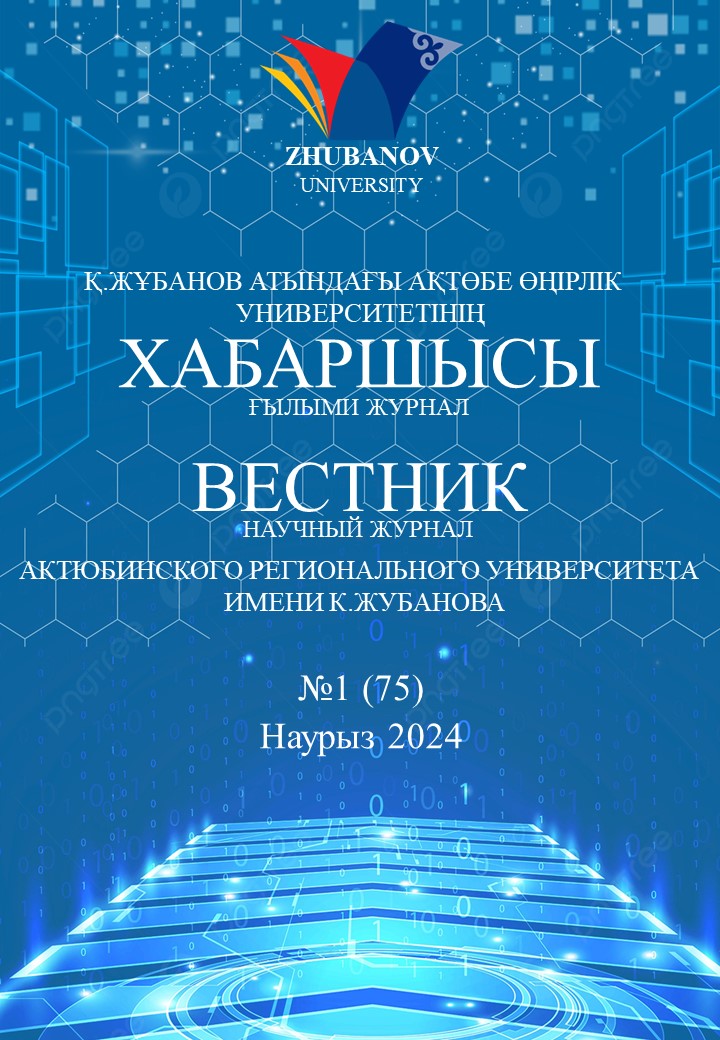Currently, due to the development of digital technologies and the accelerated pace of digitalization
of all spheres of human activity, STEM education is an important and pressing issue that requires special attention at all levels of the educational system. In addition, the integration of technological literacy is expected to contribute to a deeper understanding of the problems and perspectives in the complex process of searching for mathematical, scientific, engineering knowledge and integrated solutions.
This article discusses ways to organize STEM education, several ways to create educational content for solving
problems and foreign experience of STEM education, as well as developed software in the AutoPlay Media Studio environment. It is based on a high school textbook for 11th grade students in science and mathematics. Covers all topics of chapter IV "Internet of Things". For each topic there is a thematic plan, a short-term plan, tasks and electronic resources. The ways of using online constructors and software environments and hardware are proposed. This program, created on the basis of the textbook "Computer Science" (11th grade), can be useful for computer science teachers and
students of this specialty.
A.M. BAIGANOVA
Candidate of Technical Sciences, Associate Professor, Aktobe Regional University named after K. Zhubanov, Aktobe, Kazakhstan E-mail: altynzer_70@mail.ru, https://orcid.org/0000-0001-5717-8422
N.K. NAURYZOVA
Master, Lecturer, Aktobe Regional
University named after K. Zhubanov, Aktobe, Kazakhstan https://orcid.org/0000-0002-9012-9697
- Қазақстан Республикасында білім беруді және ғылымды дамытудың 2020 - 2025 жылдарға арналған мемлекеттік бағдарламасы, 2019 жылғы 27 желтоқсандағы № 988 қаулысы[Электрондық ресурс]. – URL:https://adilet.zan.kz/kaz/docs/P1900000988/history
- "Мемлекет басшысының 2017 жылғы 31 қаңтардағы "Қазақстанның үшінші жаңғыруы: жаһандық бәсекеге қабілеттілік" атты Қазақстан халқына Жолдауы [Электрондық ресурс]. – URL: https://adilet.zan.kz/kaz/docs/P1700000051
- Artificial Intelligence, Automation, and the Economy. - Executive Office National Science and Technology Council, December 2016, 59p. [electronic resource].
- URL:https://www.whitehouse.gov/sites/whitehouse.gov/files/images/EMBARGOED%20AI%20Economy%20Report.pdf.
- Реформа школьной системы образования (отечественный и зарубежный опыт) [Текст]. //Аналитический центр при правительстве РФ. Бюллетень о сфере образования, №10, декабрь, 2016 – 36 с.
- Алишев Т.Б., Гильмутдинов А.Х. Опыт Сингапура: создание образовательной системы мирового уровня [Электронный ресурс]
- URL:http://ecsocman.hse.ru/data/2011/07/19/1267422760/Alishev.pdf
- В. Н. Чемеков, Д. А. Крылов. STEM – новый подход к инженерному образованию [Текст]. // Вестник Марийского государственного университета. №5(20), 2015 –С. 59-64
- Ногайбаева Г., Жумажанова С. Развитие STEM образования в мире и Казахстане [Текст]. "Білімді ел - Образованная страна" №20 (57) от 25 октября 2016г.
- STEM білімді енгізу бойынша әдістемелік ұсынымдар [Текст]. Астана: Ы. Алтынсарин атындағы Ұлттық білім академиясы, 2017. – 160 б.
- В.Г. Архипова, Р.Г. Амдамова, Н.К. Беристемова, К.Б. Кадыракунов. Информатика. Жалпы білім беретін мектептің жаратылыстану- математика бағытындағы 11-сынып оқушыларына арналған оқулық [Текст]. – Алматы: «АЛМАТЫКIТАП БАСПАСЫ», 2020. – 264 б.
- M. Yerekecheva, A. Baiganova, A. Bekbauova, N. Nauryzova. BASIC CONCEPTS OF STEM EDUCATION FORMATION AT SCHOOL. MATERIALS of the VII World Congress of Turkic World Mathematicians (TWMS Congress-2023) (Part III). September 20–23, 2023,
- Turkestan, Kazakhstan. p.103-107.


